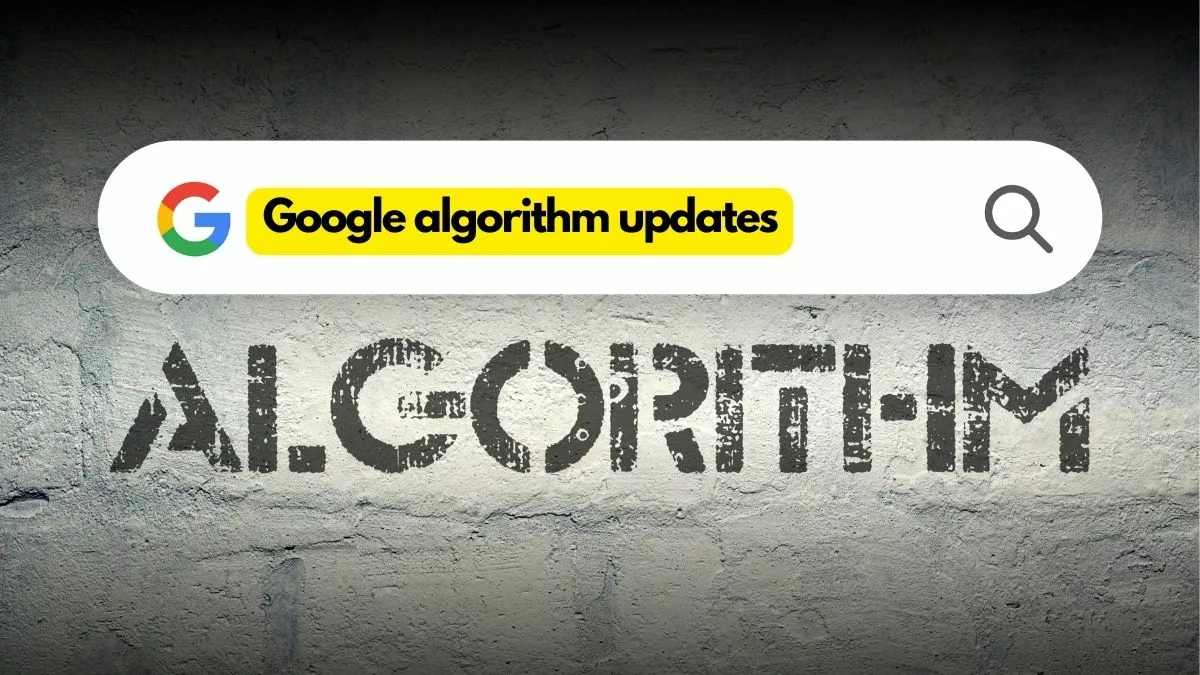Google algorithm updates create benchmarks for digital marketing companies. Unlike history recreating itself Google algorithm nourishes every content thereby creating a willy-nilly situation.
It is easy to visualize that Google is crawling all the websites when we put in our query and press enter.
Google algorithm binds up with the code known as “Spider”. Spider is fast and responsive and powered by artificial intelligence does the preliminary scan. It scans the keywords, subject, and titles. Upon getting a link, it jumps to the next website.
Taking accountability for the search term, Google further filters spam and reflects upon website quality and ranking finally presenting the results within half a second. Spider gallops from one link to another, so it is vital to link every content to aid indexing.
Let us now chronologically delve into Google algorithm updates.
Table of Contents
Panda:
On February 24th, 2011 Panda was launched. At the preliminary stages, Panda used to filter spams later it became an integral part of the search algorithm. Panda analyzes a website and assigns a quality score to each site. This score is used to track and identify the ranking modules. Panda along with the preset algorithm created a framework which emphasized content and more quality. Panda genuinely focuses on originality and clarity.
Penguin:
Penguin being the part of Google’s core algorithm since 24th April 2012. Penguin algorithm works on a real-time basis and it down ranks all the spammed websites and manipulative contents. This caters the search ranking framework and eliminates keyword stuffing. After Penguin was launched the relevancy and quality both were succinctly achieved. This new Google algorithm update made companies to reframe their websites thoroughly based on the new parameters.
Hummingbird:
Hummingbird is based on natural language processing which banks on latent semantic indexing. Launched on August 22, 2013, Google’s hummingbird made drastic improvisations in relevancy. The Hummingbird update is powered by machine learning and artificial intelligence so with time the algorithm became more robust. The embodiment was to get pertinent results even if the searcher entered a phrase without any keyword.
Penguin update and Panda update were minor updates and were a part of the old algorithm. Unlike replacing an old engine, Google replaced the whole algorithm. Hummingbird was a revolutionary update. While PageRank consisted of the many particles used to create hummingbird.
Conventional search pattern used predefined modules and emphasized on keywords only. Hummingbird interpreted the intrinsic meaning of a search query. Consider searching “How to fix NFC chip in my E-Wallet”, conventional search pattern will take keywords from the query and crawl accordingly. Hummingbird interprets the meaning behind the query and then with the help of artificial intelligence it links to the relevant contents with or without keywords.
After hummingbird was deployed all the competent digital marketing started accentuating their keyword research team. The verdict is so substantial that Google ended up predicting the search queries via autocomplete feeds.
Pigeon:
July 24, 2014, Google again updated the algorithm set. The pigeon was used to identify the dichotomy between local and core algorithm ms. Pigeon succored the entire process with more accurate and related results based on the location of the searcher. The search index is colossal, and Pigeon refrained the bewildered results. Off-page SEO techniques were again modified for better ranking.
Mobile Friendly:
Google was getting a tremendous amount of traffic from mobile devices. To maintain the ambiguity across all platforms, Google decided to punch in the new algorithm names “Mobile”. Mobile started displaying results that are only optimized for mobile phones. To avoid the willy-nilly situation, Google indoctrinated mobile algorithm update on April 21st, 2015. It became more convenient and provided easy access to users.
RankBrain:
Launched on October 26th, 2015 rank brain was also a significant update. RankBrain was an ingredient to hummingbird algorithm which is a machine learning module. RankBrain was able to bind up the missing links and understand the queries much faster. Google was struggling to provide more relevant results, and RankBrain assisted in that edge. Natural language processing and predictive analysis was the base of Rankbrain algorithm thus providing more clear and relevant results.
Possum:
Unlike Pigeon update, Possum update also focused on location-based relevancy. Possum came up with a more robust and prominent framework by displaying the nearest possible business landmarks, business paces and points of interests to the searchers. Possum promoted the mantle of providing nearby relevant businesses.
Fred:
Fred was executed on March 8, 2017. There was a minor update that ensured no website violates Google’s webmaster guidelines. To generate advertises from affiliate programs many websites used fraudulent techniques and duplicated contents. Fred works in real time and identifies the sites with few preset parameters and down ranks them.
Final Note
Most certainly all the discussions about SEO inevitably indoctrinate Google rather than other search engines. SEO is based on facts and results drawn out of assumptions. No one except Google search engineers known how the algorithm works and the prominent mathematical sequences coupling up the interoperability.
“Spider” crawls the web and lands upon those pages that are clickable and are linked. The spider will not enter admin details and login. The austere task is loosened up by the cache; Google creates an image of the recurring websites in the form of cache and stores it in the server to organize faster. The verdict being so conditioned that a small change in algorithms can eventually tear up the digital marketing platform. Google being the tech giant always prevails the digital edge, so it is a daunting task to trick Google.
